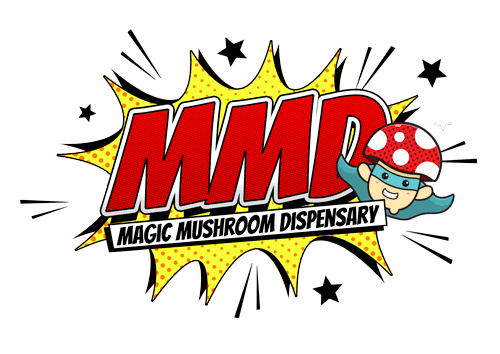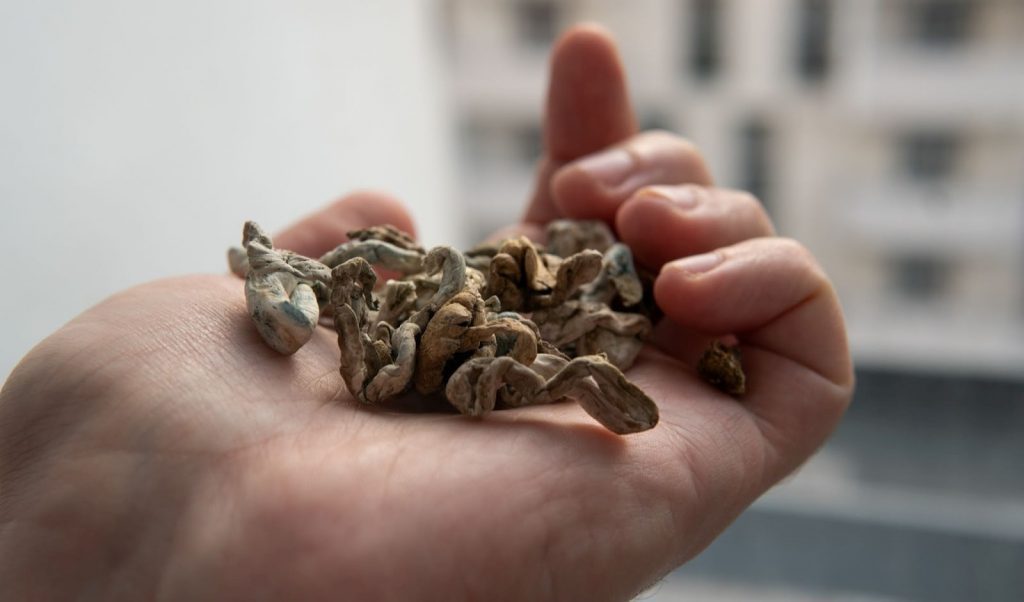Magic Mushrooms
Cognitive Enhancement and Memory Improvement: Exploring the Effects of Magic Mushrooms
Imagine a world where natural substances transcend cognitive limitations. Magic mushrooms, long associated with psychedelic trips, are now at the forefront of scientific research into cognitive enhancement and memory improvement. They have a rich history, with use dating back to ancient cultures in both spiritual and medicinal contexts, making them a subject ripe with both intrigue and controversy. In this article, we delve into the multifaceted effects of magic mushrooms, from their chemical makeup and interaction with brain chemistry to their potential for therapeutic use and the inherent risks involved.
Magic Mushrooms: A Brief Overview
Magic mushrooms, or psilocybin mushrooms, have intrigued cultures worldwide due to their profound hallucinogenic effects. When ingested, these mushrooms catalyze a psychedelic experience, often described as a spiritual journey. The active compound psilocybin can lead to distorted senses, including visual and auditory hallucinations, an altered sense of time, euphoria, and even a profound spiritual experience.
Magic mushrooms have also piqued scientific interest due to their potential therapeutic benefits. Studies are exploring their effectiveness in treating mental health disorders, including treatment-resistant depression and substance use disorders. This hallucinogenic drug which has long had a tumultuous reputation is finally being recognised for its wide range of potential benefits.
Psychedelic Drugs and Their Effects on the Brain
Understanding the Chemical Composition of Magic Mushrooms
The primary psychoactive components of magic mushrooms are psilocybin and psilocin. The hallucinogenic effects that define the psychedelic experience are due to these compounds. The chemical constitution and concentration of psilocybin and psilocin can vary widely among different mushroom species, contributing to the variations in intensity and duration of their effects. In terms of consumption, magic mushrooms offer versatility: they can be ingested fresh or dried, ground into a powder, steeped into tea, mixed into food, or even blended with fruit juice.
How Psychedelic Drugs Interact with the Brain’s Neurotransmitters
The profound transformative experiences induced by psychedelic drugs, such as psilocybin, DMT, and LSD, are primarily the result of their interaction with the brain’s neurotransmitters. These drugs exert their effects by binding to serotonin receptors in the brain, particularly affecting bodily functions and psychological states. Once ingested, psilocybin is metabolized into psilocin, the compound that then engages select serotonin receptors, most notably the 5HT2a receptor.
This particular receptor is widely believed to be a key player in producing the altered states of consciousness associated with these drugs. The affinity of psychedelic drugs for this receptor leads to changes in brain connectivity and neuron activity, observable in as little as 30 minutes post-ingestion. The dynamic alterations in brain activity and cross-talk between distinct brain regions are foundational to the typical psilocybin experience.
The Healing Power of Psilocybin: Exploring the Positive Effects of Magic Mushrooms
Psilocybin, the primary psychoactive ingredient in magic mushrooms, is not merely a means to experience vivid hallucinations. It’s also a substance with the profound potential to heal the mind. Recent scientific inquiry has uncovered psilocybin-assisted mindfulness training could foster enduring changes in self-awareness and connectivity within the brain’s default mode network—areas correlated with personal identity and introspective thought. These developments illustrate just how significant the positive effects of this psychedelic compound might be. Below, we’ll explore the key benefits of psilocybin-led psychedelic treatment and use.
Therapeutic Potential for Treatment-Resistant Depression
Depression is a daunting adversary, particularly when it shrugs off conventional treatments. However, research studies point to psilocybin as a potential game-changer for those grappling with treatment-resistant depression. Unlike some medications that can blunt a person’s emotional range, psilocybin appears to reduce depressive symptoms while preserving—and possibly enhancing—emotional depth.
Functional magnetic resonance imaging (fMRI) has offered a window into the brain under the influence of psilocybin, revealing possible long-term enhancements in neural connections. Meta-analyses further bolster the case for its therapeutic effects, signaling psilocybin’s beneficial impact on depression. Crucial to its success is the considerate integration of support from trained therapists during treatment sessions, grounding patients during these powerful psychedelic experiences, and ensuring the utmost benefit. With more research and continued use, we might see mushrooms as a mainstream treatment for depression in the future.
The Creativity Boost Encouraged Through Psilocybin
Psilocybin found in magic mushrooms has been shown to boost creativity through its effects on the brain. Research suggests that moderate doses of psilocybin can enhance divergent thinking, leading to increased creativity and novel problem-solving abilities. By reducing activity in the default mode network and increasing connectivity between brain regions, psilocybin facilitates a state of heightened cognitive flexibility and openness to new ideas.
This creative enhancement is often accompanied by a sense of interconnectedness and profound insights, which can inspire innovative thinking and artistic expression. While the mental effects of psilocybin are well-documented, including alterations in perception, mood elevation, and spiritual experiences, individuals with mental health issues should approach its use cautiously, as it may exacerbate symptoms in some cases. Overall, the creative potential of psilocybin underscores its therapeutic promise and highlights its role in expanding consciousness and fostering imaginative exploration.
Exploring the Hallucinogenic Effects of Magic Mushrooms
Beyond therapeutic benefits, the essence of magic mushrooms lies in their hallucinogenic properties. Once ingested, psilocybin incites a complex stimulation within brain circuits, leading to psychoactive episodes ranging from euphoria to profound perceptual changes. Users report everything from intensified sensory experiences to a complete dissolution of the boundaries between reality and imagination.
Whilst these hallucinogenic effects can also precipitate nausea, fluctuations in heart rate and body temperature, and muscle weakness, it is important to remember that as with most psychedelic drugs, everyone has subjective experiences. Many people therefore take hallucinogenic mushrooms and experience spiritual and transformative short-term effects without any of the common side effects, highlighting its subjective nature.
Achieve Better Memory By Using Shrooms
Achieving better memory through the use of psilocybin-containing mushrooms involves a complex interplay between the compound’s psychoactive effects and the brain’s cognitive processes. Under appropriate medical supervision, psilocybin has shown potential as an effective treatment for memory enhancement. Studies suggest that psilocybin can promote neuroplasticity, the brain’s ability to reorganize and form new neural connections, thereby improving memory retention and recall.
Additionally, the subjective experience of consuming psilocybin is often described as pleasant, which can contribute to a positive mindset conducive to learning and memory consolidation. However, it’s crucial to emphasize the importance of responsible use and adherence to safety guidelines, as psilocybin is a potent psychoactive drug. Under medical supervision, individuals can harness the benefits of psilocybin to enhance memory function while minimizing potential risks to the body and mind.
FAQs about buying magic mushrooms online
Risks and Considerations When Using Magic Mushrooms
Despite the wide range of positive benefits associated with magic mushrooms, responsible ingestion requires awareness of potential risks and considerations. As a hallucinogenic substance, psilocybin can induce subjective effects ranging from euphoria to anxiety. Adverse events may occur, especially in individuals with pre-existing mental illness or negative experiences. It’s crucial to approach shroom use cautiously, considering factors like dosage, set, and setting.
While many users report a pleasant experience, understanding the potential for adverse reactions and interactions with pre-existing health conditions is essential for safe and mindful consumption. Responsible usage involves informed decision-making and prioritizing personal well-being above all else.
Always Check the Legal Status of Magic Mushrooms
Magic mushrooms have come under scrutiny in national and international drug policy. The presence of psychoactive substances, psilocybin or psilocin, earmark them as Class A drugs, making them illegal in some jurisdictions.
While there is burgeoning research into psilocybin as a therapeutic agent, conclusive results that could reshape the legal status are still in developmental stages. Until changes are solidified, users should be well-informed of the legal risks including penalties they may face for the possession, consumption, or distribution of magic mushrooms.
The Possibility of Adverse Effects
Some individuals may be particularly sensitive to the psychological effects of psilocybin. A notable concern is the potential for inciting psychotic episodes, with those possessing a family history of psychosis, bipolar disorder, or post-traumatic stress disorder being especially vulnerable. Panic reactions can spiral into harmful behaviors, including the threat of violence or self-harm. Nevertheless, shrooms have equally been highlighted as treatment options for these mental health issues, hence further highlighting the subjectivity of the drug.
Outside of the mental health conditions that shrooms may affect, there are also physical effects that some people experience. Ranging from dilated pupils to an irregular heartbeat, there can be a negative reaction in your body to psilocin. Therefore, to ensure a pleasant experience, it is recommended you consume your shrooms in a safe environment around people you trust.
Risk of Dependency
While psychedelic mushrooms carry a risk of dependency, they are generally considered less addictive than many other psychoactive drugs. Despite their potential benefits, frequent and excessive use can lead to psychological dependence. Individuals may develop a tolerance, requiring higher doses to achieve desired effects, and withdrawal symptoms, though typically milder than those associated with other substances, can include mood changes and cravings.
The potential for abuse underscores the importance of responsible usage and awareness of personal limits. While the risk of dependency exists, it’s essential to recognize that psychedelic mushrooms offer therapeutic potential when used mindfully and in moderation. Prioritizing informed decision-making and understanding one’s relationship with these substances is crucial for minimizing the risk of dependency and maximizing their potential benefits.
Tips to Ensure a Positive Magic Mushroom Experience
Ensuring a positive magic mushroom experience involves careful planning and responsible usage. Here are some tips:
- Purchase from a Reputable Dispensary: Buying from a licensed and reputable dispensary ensures the quality and safety of the product, reducing the risk of consuming contaminated, misidentified, or poisonous mushrooms.
- Start with a Low Dose: Begin with a low dose to gauge individual sensitivity and tolerance. Gradually increase the dose over subsequent experiences if desired, but avoid excessive dosing to minimize the risk of overwhelming effects.
- Choose a Safe and Comfortable Setting: Create a comfortable and safe environment free from distractions, ensuring privacy and security during the experience. Consider factors like lighting, temperature, and access to amenities. This will help to ensure you do not get overwhelmed by the psychological effects of shrooms.
- Set Intentions: Before consuming magic mushrooms, set clear intentions for the experience. Whether seeking personal insights, emotional healing, or creative inspiration, having a purpose can guide the journey and enhance the overall outcome.
- Be Mindful of Set and Setting: Pay attention to both internal (set) and external (setting) factors that may influence the experience. Cultivate a positive mindset, free from stress or anxiety, and surround yourself with supportive and trusted individuals.
Buy Quality Magic Mushroom Products Online
At Magic Mushroom Dispensary, we pride ourselves on offering premium-quality magic mushroom products that prioritize safety, consistency, and customer satisfaction. Our extensive selection includes a variety of strains and products, carefully cultivated and processed to ensure optimal potency and purity.
From mushroom capsules and edibles, each product undergoes rigorous testing and quality control measures to meet our high standards. With a commitment to transparency and professionalism, we strive to provide our customers with a positive and transformative experience, guided by integrity and respect for the profound potential of magic mushrooms. Experience the difference with Magic Mushroom Dispensary today.

